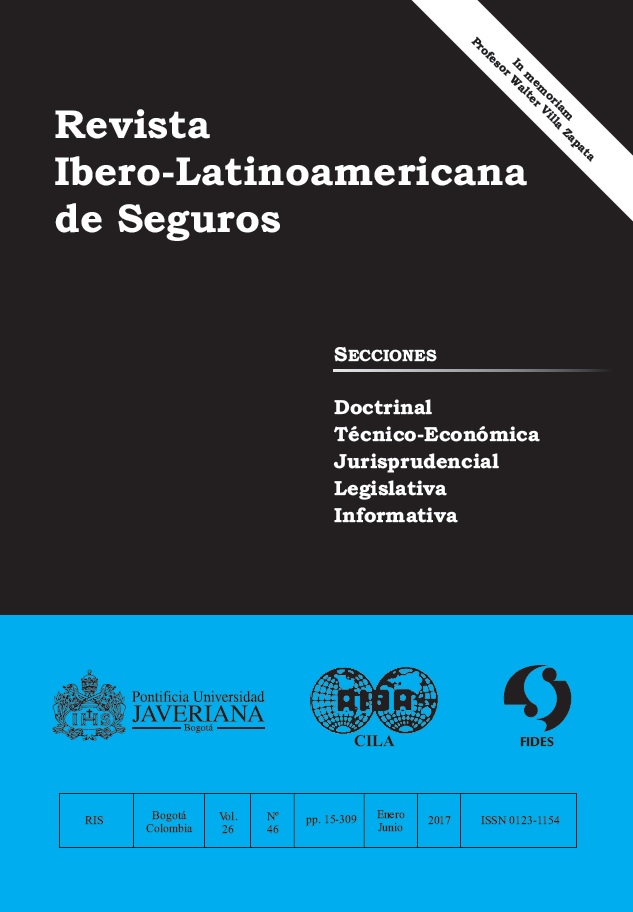Abstract
In this article our purpose is to look at the development of the normative background until we reach what we have today in regulation, then recommend what the system lacks so that the channels can become more flexible and inclusive. We aim to have channels that generate effective solutions for all the economic sectors and socio-economic strati, in all the national territory.
Today, in the insurance sector omnychanell is an increasing reality, which has led to the strengthening of the direct channel, and the strategic alliances for the commercialization of insurance. This has also broadened the penetration of the insurance sector, generating more financial inclusion, which leads to products and services that are better adjusted to the needs of the insured.
According to the international regulatory scene, there is a tendency for disintermediation in the commercialization of insurance, this looks for a bigger inclusion of the insurance sector, and a greater penetration in the GDP, which in Latin American countries is quite low.
In the Colombian panorama we can find regulatory development that allows the democratization of the insurance contract, where every time more people of all socio-economic strati have had the possibility of acquiring an insurance, not only for its cost, but also for an increasing range of places where they can acquire it. Nevertheless, we consider that there are still gaps to be filled, without ignoring all the advances that have been made, and the good doing developed by the government and the regulators.
This journal is registered under a Creative Commons Attribution 4.0 International Public License. Thus, this work may be reproduced, distributed, and publicly shared in digital format, as long as the names of the authors and Pontificia Universidad Javeriana are acknowledged. Others are allowed to quote, adapt, transform, auto-archive, republish, and create based on this material, for any purpose (even commercial ones), provided the authorship is duly acknowledged, a link to the original work is provided, and it is specified if changes have been made. Pontificia Universidad Javeriana does not hold the rights of published works and the authors are solely responsible for the contents of their works; they keep the moral, intellectual, privacy, and publicity rights.
Approving the intervention of the work (review, copy-editing, translation, layout) and the following outreach, are granted through an use license and not through an assignment of rights. This means the journal and Pontificia Universidad Javeriana cannot be held responsible for any ethical malpractice by the authors. As a consequence of the protection granted by the use license, the journal is not required to publish recantations or modify information already published, unless the errata stems from the editorial management process. Publishing contents in this journal does not generate royalties for contributors.


